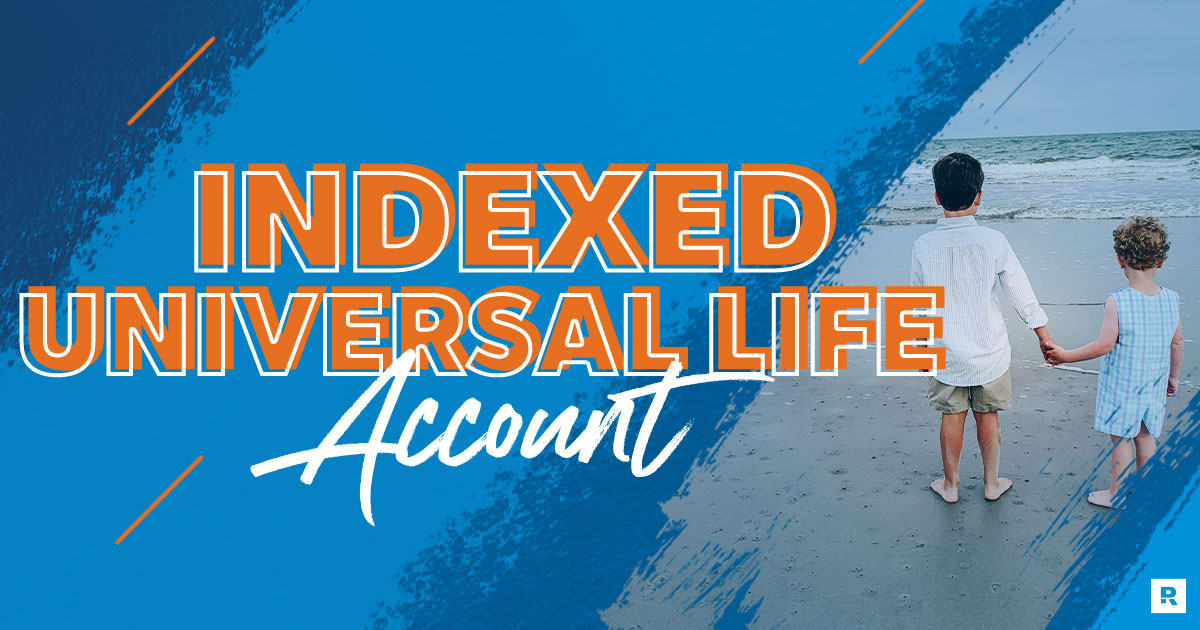
Key Takeaways
- An IUL account is part of an indexed universal life insurance policy and receives money left over from premiums (after fees) that will supposedly create a life insurance policy as well as a nest egg for retirement.
- The money earned from the IUL account can be used to pay your premiums (which regularly go up), but the IUL account balance will begin to shrink unless you pay enough on the premiums to avoid using the money you’ve “saved.”
- Mixing insurance and investing is a bad idea. Instead, you should use an actual retirement savings account like a 401(k) or Roth IRA.
- Term life insurance is a much better deal than an IUL account and will keep your family covered—which is what life insurance is for.
An indexed universal life (IUL) account takes two moderately simple things (investing and life insurance) and overcomplicates them both so you can “build wealth” . . . somehow. But why? I’m all about investing for retirement and insuring your life, but I’d never recommend putting those two services together in one package. Trust me, that combo is more offensive than Kranch Saucy Sauce. Hard pass.
Compare Term Life Insurance Quotes
If you’ve ever wondered what an IUL account is and how it works, we’re about to walk through the ins and outs of this absolutely terrible mash-up.
What Is an IUL Account?
An IUL account is the part of an indexed universal life insurance (IUL) policy that’s supposed to build cash value over time (kind of like a savings account). The money in it earns interest based on the performance of a specific stock market index. The other part of an IUL policy is the life insurance death benefit.
When you pay your IUL premium, that money goes to:
- The death benefit (insurance part)
- An IUL account (investment part)
- Fees (lots of fees)
If you’re asking why a savings account is teamed up with a life insurance policy, I’m right there with you. But TikTok and YouTube are full of clickbait videos peddling this stuff, so let’s dig deeper.
How Does an IUL Account Work?
Your IUL account is tied to (but not invested in) an index. An index is a measurement investment experts use to figure out how well the stock market is performing. The insurance company you buy your IUL from uses that index’s performance to figure out what interest rate to pay on your account—and that interest is how your money is supposed to grow over time.
IUL accounts can follow many different indexes—some are general, and others focus on just one part of the market. The S&P 500, for example, is a well-known index that tracks the stock performance of 500 large companies on the stock exchange.
There are some rules about how IUL accounts work. A couple of them are even used as selling points—but I think they all suck. Here they are:
- Guaranteed floor: Many IUL accounts have a guaranteed floor, which means the company promises your account value won’t go below that amount, even if the index it’s tied to tanks. I understand wanting to keep your money safe, but there’s another side to that coin . . .
- Earning cap: Most IUL accounts also have a cap on how much interest they can earn. These caps usually cut off your account’s earning potential before it even gets close to how the actual index is performing. This means that even if the index is doing super well, you’ll still only have modest gains over time—and your account might not even grow at all.
- Flexible premiums: Remember the life insurance portion of this deal? Well, one of the supposed benefits of IULs is that you can use the cash value to cover your premiums—which, by the way, increase as you get older! But wait . . . what if the IUL account hasn’t grown enough to pay the bigger and bigger premiums? Sure enough, the balance will begin to shrink unless you pay enough on those rising premiums to avoid using the money you’ve saved in your IUL account.
Another big problem: The insurance company holding your IUL account is totally okay with you borrowing against your own money. This is a terrible idea! Never ever go into debt, especially to borrow your own money. You’ll be charged interest on this self-loan, and if you don’t pay it back before your death, the entire debt will be deducted from the death benefit! Yep—that’s a special kind of stupid.
And if all that sounds bad, it’s even worse when you compare an IUL to other forms of investment.
What’s an Example of an IUL Account?
So, let’s say your IUL account has $1,000 in it. And for the month of May, the index it’s tied to gained 8%. Now, if you were invested in an actual investment, that means you would’ve gained 8%—your $1,000 would’ve earned $80.
But you’re in an IUL account, so you don’t actually get the 8% return. You get 8% times whatever your insurance company’s participation rate is. So you’re getting a percentage of a percentage. At this point, your return is basically the LaCroix of investing—just a whisper of actual flavor while being mostly bubbles and hype.
Participation rates can vary by company (and they can also change during the life of the policy), but in this example, your chosen insurance company’s is 50%. That means you’ll get half of the 8%: 4%. So, your grand total return for the month of May is $40.
Now, if the index your IUL account is tied to goes down, you don’t earn anything—you might actually lose some cash value. Yikes.
Is an IUL Account a Good Investment?
If you remember one thing from this article, let it be this: An IUL account is a terrible investment.
The fees that come with keeping the policy active are bad enough. But the real problem with IULs is that even after you pay the fees, the tiny bit of cash you can add to the IUL account will be wildly unimpressive. Then consider the so-so returns you get because the insurance company sets a participation rate that cuts your return rate to a percentage of the real index return, and you can see the truth: An IUL is the riding lawn mower of investing. Sure, it technically moves, but it’s not taking you anywhere worth going (unless you just want to run circles around your lawn).
So, why would anyone buy an IUL policy in the first place?
There are a lot of loud voices out there saying it’s great stuff. And people really do need to get life insurance and save for retirement. The folks who sell IUL policies claim they’re a convenient way to cover those two big needs at once—a death benefit plus a way to save and even grow your money in a cash account.
I’ve seen lots of “financial influencers” and “wealth strategists” announce they’ve got some supersecret money hack of the rich that can also make you rich. But all they’re really selling is IUL. (You can’t see it, but I’m shaking my head while rolling my eyes.)
But like all other forms of permanent or universal life insurance, IULs are major rip-offs that do a lot more for the finances of the person selling them than they do for the customers buying them. Sleazy salespeople take advantage of the fact that most people are impulsive (or lazy) shoppers who don’t always know a lot about how life insurance and retirement investing should work. The truth is, your cash isn’t likely to grow much or very quickly in an IUL account, but those insurance salespeople make all kinds of promises that it will.
For long-term investing, your best bet is to put money in good growth stock mutual funds through one or more tax-advantaged retirement accounts, like your 401(k) at work or a Roth IRA. You’ll get way better returns there than you’d ever see with an IUL account.
And as far as the life insurance part goes? I’m telling you to stay far, far away from indexed universal life (or any permanent life insurance) and go with term life insurance all day long. It’s way more affordable, and your premiums will stay the same throughout the whole term of the policy. And then, once you’re self-insured, you can drop the policy and pocket the savings.
Get Term Life Insurance Rates from Zander Today!
RamseyTrusted partner Zander Insurance will get you rates from top life insurance companies and pair you with the one that fits you best.
You Don’t Need Indexed Universal Life—You Need Term Life Coverage
Indexed universal life is a horrible deal all around. At best, it’s a stupid investment. And at worst, it’s a high-risk, high-cost and high-commission account that locks you into years of pricey premiums.
And all that makes the insurance company rich, not you, because (say it with me) insurance is not a wealth-building tool. It’s a means of protecting your family in case something happens to you. And for something as important as that, you need an insurance policy that’s solid, predictable and easy to understand—and that’s term life insurance.
If you’re in the market for new term life insurance or want to talk to an expert, I recommend RamseyTrusted® partner Zander Insurance. Don’t let another day go by without being protected.
Next Steps
- Still got life insurance questions? Check out our article that explains the main types of life insurance.
- Learn more about term life insurance so you can be confident it’s the right fit.
- Check out our handy calculator to figure out how much life insurance you need.
- Get in touch with a RamseyTrusted independent insurance agent from Zander Insurance to get a free quote today!



